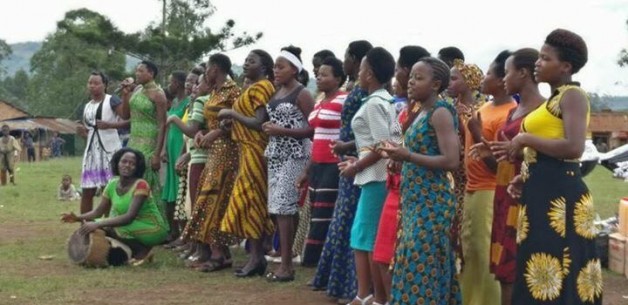
In response to the harm caused by the World Bank funded Uganda Transport Sector Development Project (UTSDP), including the sexual exploitation of teenage girls, BIC has conducted advocacy to encourage that the Bank takes steps to provide redress to the community and to prevent such harm from occurring in future projects. BIC has worked with Joy for Children Uganda to ensure that the girls harmed received appropriate support.
With the increase of sexual violence, many girls were forced to drop out of school due to pregnancy while others were forced to work in the service industry or sell food either by the road or in the market. In an effort to respond to this, the Emergency Child Protection Response (ECPR), funded by the Bank and carried out by BRAC, an international NGO, worked to address the needs of the identified victims in the community. Through the program, survivors of sexual exploitation were helped financially to take care of immediate needs for their babies and themselves and provided with psychosocial support. They were also assisted in reentering formal schooling and or provided apprenticeships. On May 18, 2017 a community wide ceremony was held to celebrate the graduation of 37 girls from apprenticeship training. This was attended by representatives of the World Bank, Ugandan National Roads Authority (UNRA), Joy for Children, and BIC.
Also, as part of the ECPR, BRAC engaged the broader community by setting up 35 “girls clubs”, enrolling a total of 1,059 adolescent girls by February 2016. The girls that are a part of these clubs are receiving life skills’ training that includes health classes, family planning, and leadership. While the results of these program are promising, it remains to be seen whether the support to affected girls and the wider community will be sustained during the next phase of the Bank’s remediation effort, a $1 million Rapid Social Response grant to “scale up and sustain” the ECPR.
When the Bank, after significant delay, began to work with the Ugandan government to address the Gender Based Violence (GBV) that occurred around the TSDP project it became clear that there was a significant need to address the issue of GBV nationwide. This led to the June 20th approval by the World Bank’s Board of Executive Directors of a US$40 million IDA loan for the Strengthening Social Risk Management and Gender-Based Violence (GBV) Prevention and Response Project. The project invests in building intervention methods, strengthening the capacity of services to address the needs of survivors and improving their ability to provide quality care. Rates of GBV in Uganda are high – about 62% of women and 59% of men have reported experiencing violence at least once — this project recognizes the need to implement policy and manage social risk in development projects.


